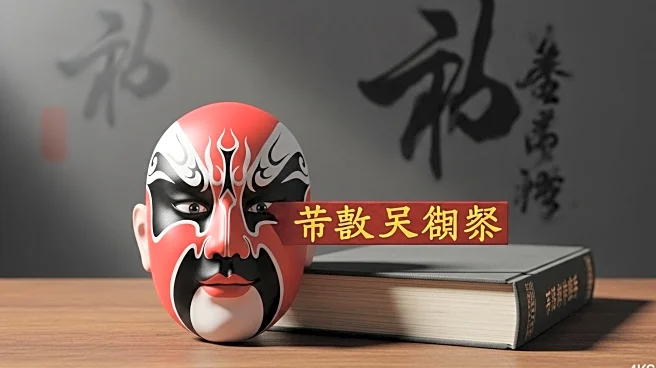What's Happening?
China is experiencing a cultural crackdown under the leadership of Xi Jinping, with the government targeting various cultural trends and expressions. The Chinese Communist Party has criticized spending on blind boxes, video games, and other cultural products, aiming to regulate minors' consumption. The regime's efforts extend to suppressing dissent and controlling public discourse, reflecting a neo-totalitarian approach. This comes amid perceptions of China's global ascent, with some viewing it as a potential dominant power. However, domestically, the country faces increasing repression, raising questions about its trajectory.
Why It's Important?
China's cultural policies have significant implications for its global image and domestic stability. The crackdown could limit China's cultural influence and innovation, affecting industries like entertainment and technology. Domestically, the repression may stifle creativity and economic growth, impacting the country's long-term development. The government's control over ideology and society could lead to social unrest and hinder China's ability to address economic challenges. The situation highlights the tension between China's global ambitions and its authoritarian governance.
What's Next?
China's continued repression may lead to further international scrutiny and affect its relationships with other countries. Domestically, the government's policies could provoke resistance from citizens and impact social cohesion. The regime's focus on ideological control may influence future cultural and economic policies, shaping China's development path.
Beyond the Headlines
The cultural crackdown raises ethical concerns about freedom of expression and human rights in China. It also reflects broader geopolitical dynamics, as China's domestic policies influence its global interactions. The situation may affect international perceptions of China's model of governance and its appeal as a global leader.










